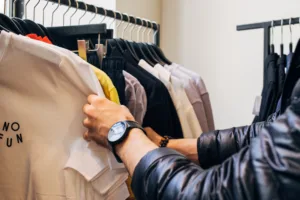According to new research, the majority (79%) of online shoppers reveal that user-generated content (UGC) such as images and videos from other consumers highly impacts their purchasing decisions. But only 9% say the same for content produced by influencers.
In fact, the report from Stackla reveals that for 72% of consumers, photos and videos from real customers is the content they most want to see on ecommerce sites when making purchasing decisions. 66% admit to having been inspired to purchase from a new brand after seeing social media images of that brand from other consumers. And 56% say they’re more influenced by images and videos from social media when online shopping now than they were pre-pandemic.
Stackla’s report, Post-Pandemic Shifts in Consumer Shopping Habits: Authenticity, Personalisation and the Power of UGC, is based on a survey of 2,042 consumers across the US, UK and Australia. The findings suggest that UGC strongly impacts a variety of industry categories. For example, 65% of consumers in the poll have purchased apparel or fashion items because of user-generated images or videos from real customers, while 53% have purchased a beauty, health or wellness product based on user-generated images or videos on social media. And 48% of consumers say UGC is the most influential content when making home or sports goods purchasing decisions.
The research indicates that post-pandemic consumers are crying out for more authenticity from brands. The overwhelming majority (88%) of the survey respondents say authenticity – described as relating to firms being genuine and real – is an important factor in deciding which brands they like and support. And 83% believe retailers need to provide more authentic shopping experiences to customers like them.
Perhaps unsurprisingly, 59% of online shoppers in the survey say content created by other consumers is the most authentic type of content; only 10% say influencer content resonates as authentic and 19% say that brand-created content is the most authentic.
The other side of the coin is that having spent more time on social media during the pandemic (79% say they now spend more time and 41% post more on social media), the research reveals that many consumers are now open to the idea of creating and seeing their own user-generated content being shared by brands on social platforms. 58% would grant a brand permission to use an image or video they had posted of clothing or accessories to use in its marketing. And 58% would do the same for an image or video of a home goods product. For a beauty/health/wellness product it was 54%, a sporting goods product 53% and for images of a recent trip/excursion, 52%.
“All generations of shoppers are telling brands they’re more likely to purchase products if they see authentic customer content on websites,” said Damien Mahoney, CEO and Co-founder at Stackla. “The survey results tell us online shoppers are influenced by and expect to see visual content from real customers more than ever before.”
“As more consumers make the shift to online shopping, they’re increasingly seeking authentic and personalized experiences to help them make purchasing decisions,” Mahoney said. “Luckily, today’s consumers are creating and willing to share with brands the exact content they want to see throughout their ecommerce experiences. The brands who use UGC to deliver these types of real and relevant experiences are the ones who will win shoppers now and in the future.









